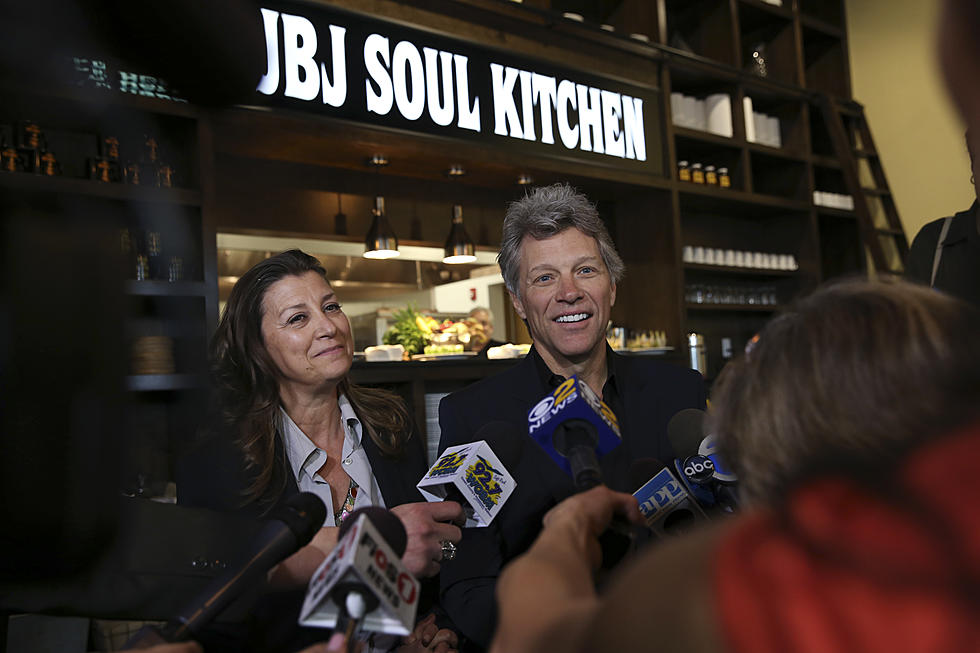![Jon Bon Jovi’s Daughter and The Good Samaritan Law – Do We Need it Here? [POLL/VIDEO]](http://townsquare.media/site/385/files/2012/11/stephanie-bongiovi1.jpg?w=980&q=75)
Jon Bon Jovi’s Daughter and The Good Samaritan Law – Do We Need it Here? [POLL/VIDEO]
Charges have been dropped in the case of 19 year old Stephanie Bongiovi, daughter of singer Jon Bon Jovi, who’d allegedly overdosed on heroin in a dorm room at Hamilton College in upstate New York.
What probably saved her was New York’s Good Samaritan Law, as the overdose was reported by her friend, 21 year old Ian Grant of Red Bank.
He too had been similarly charged, and his charges were dropped as well.
Some already have theorized that charges were dropped because of who her dad is and his connection with the President of the United States.
Under New York state law, someone having a drug overdose or seeking help for an overdose victim can’t be prosecuted for having a small amount of heroin or any amount of marijuana.
The so-called Good Samaritan 911 law signed by Gov. Andrew Cuomo in July 2011 was designed to reduce overdose deaths by encouraging people to call 911 without fear of being arrested for drug possession. Similar laws have been passed in several other states.
But not New Jersey, where our Governor, just a month ago, conditionally vetoed a bill similarly crafted.
His reasoning, according to this: was as follows.
Christie said the reason for his conditional veto is simple, he doesn’t agree with total immunity.
“Its a bill that included immunity for anyone who picked up the phone no matter what they did…I don’t think people should be immune from prosecution if they are involved in a drug overdose.”
“They call it a good samaritan bill, good samaritan?
How about if they’re not a good samaritan? What if they are the person that supplied the drugs? That is my problem with this bill” he added.
Christie wants the legislature to draft a bill that would require the state Attorney General’s office to study overdose reporting for the next 18 months and then report back to him.
“My job is to get into the detail on this stuff and make sure that we’re not causing more harm than good by doing it.”
Actually the bill doesn’t allow for total immunity, because, according to this:
The legislation would treat the fact that the person sought medical assistance for someone experiencing a drug overdose as a mitigating factor in a prosecution for other drug-related offenses. It would also provide the good Samaritan with an affirmative defense against prosecution if the overdose leads to the death of the victim.
Under current law, a person who manufactures, distributes or dispenses Schedule I and II controlled-substances such as heroin, methamphetamine or cocaine is liable for the death that results from the injection, inhalation or ingestion of that substance and is guilty of a first-degree crime.
“Saving someone’s life is more important than prosecuting either the victim or the person who does the right thing by calling for help,” says Senate Majority Leader Weinberg, co-prime sponsor.
“Our current law encourages people to abandon those who are overdosing out of fear of arrest and prosecution. With the ‘Good Samaritan Emergency Response Act,’ we can ensure that the laws reflect our values that these people’s lives are important and worthy of saving.”
“Deaths from drug overdoses are the leading cause of accidental death in New Jersey, but many of these deaths could be prevented if medical assistance were sought immediately,” says Assembly sponsor Connie Wagner. “Many times, the fear of arrest and prosecution prevents people from seeking appropriate assistance in the face of a medical emergency involving drug use.”
Bottom line, the bill needs to be revisited.
Would you support a Good Samaritan law in New Jersey similar to the one in New York?
More From New Jersey 101.5 FM









